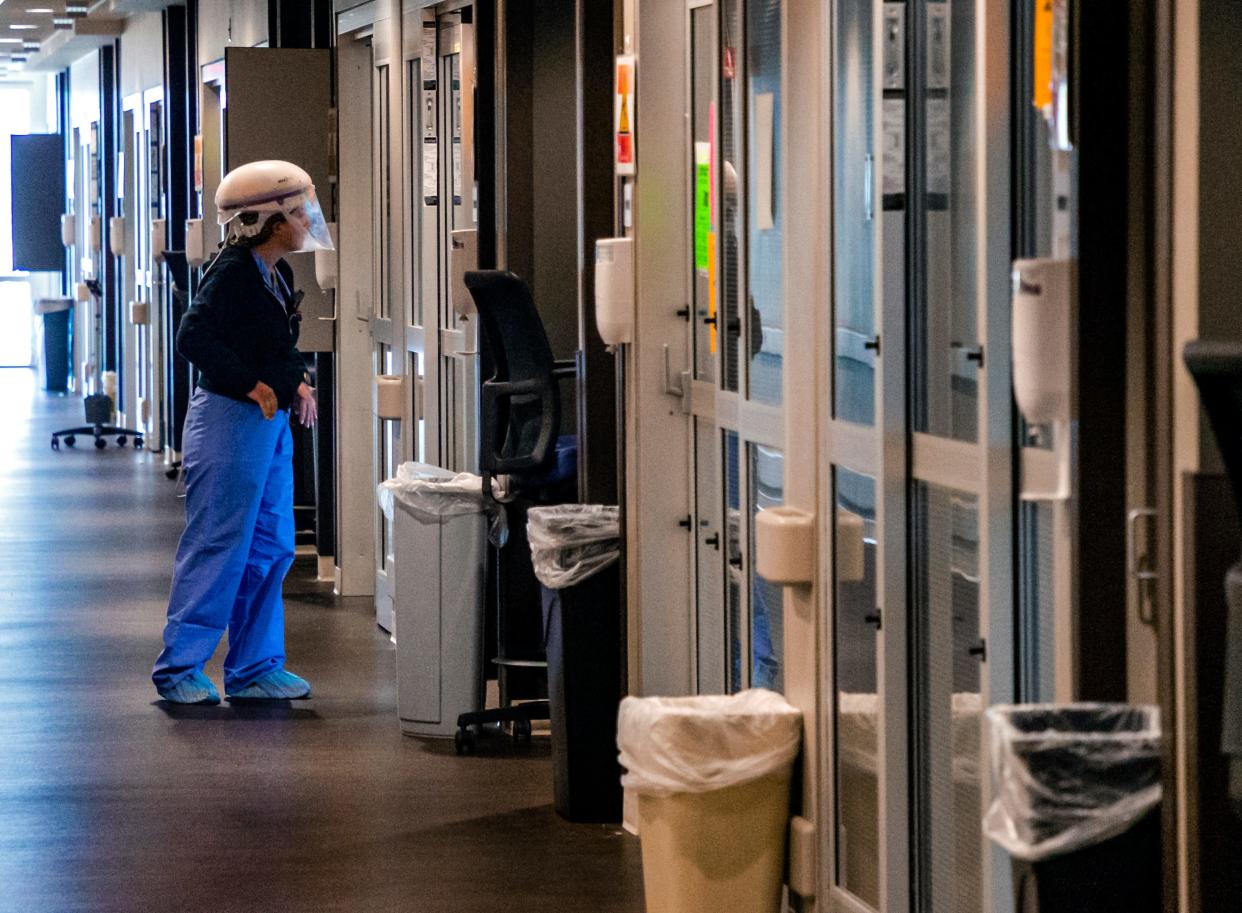Medicaid changes, anti-trans bill and other health-related issues to watch for in 2023

The past year brought no shortage of news about Oklahomans’ health, and 2023 likely will be no different.
The year started off with a crushing COVID-19 surge, flooding hospitals and sending case counts soaring as the omicron variant took hold. As the year went on, Oklahomans have seen COVID-19 vaccination eligibility expand to the state’s youngest residents and new booster shots become available.
In the spring, the Oklahoma Legislature began passing a slew of anti-abortion measures. With the fall of Roe v. Wade in the summer, abortion access has essentially vanished across the state.
The summer also brought the unveiling of the new 988 code to reach suicide prevention resources nationwide. In Oklahoma, calls are answered in-state by call center staff from Solari Crisis and Human Services. Since the launch, the center has answered thousands of calls and dispatched hundreds of crisis intervention teams.
And this fall and winter, we’ve seen a surge of respiratory syncytial virus (RSV) in kids, as well as a rougher flu season than Oklahoma has seen in several years.
Looking ahead to the coming year, here are five health-related storylines to watch for in Oklahoma in 2023:
Medicaid changes
It’s likely many Oklahomans will lose Medicaid coverage in 2023, if the federal public health emergency for COVID-19 ends. It’s been in place since 2020, and it requires states to keep Medicaid enrollees covered for the duration of the public health emergency, even if they no longer meet eligibility requirements.
The combination of the continuous coverage requirement from the public health emergency and Oklahoma’s Medicaid expansion has meant hundreds of thousands more Oklahomans have coverage.
The Oklahoma Health Care Authority, which oversees the state’s Medicaid program, has asked people to prepare for the potential end of the public health emergency by making sure their documentation and contact information is up-to-date at MySoonerCare.org.
And more changes are coming to SoonerCare, Oklahoma’s Medicaid program.
SoonerCare will shift to a managed care model, dubbed SoonerSelect, privatizing the program. Under managed care, care management for most Medicaid recipients will be outsourced to private insurance companies.
Implementation of SoonerSelect was initially set for October 2023, but has since been pushed back to April 2024.
Anti-abortion measures
Could more anti-abortion measures be coming in 2023? Oklahoma lawmakers took several measures to curtail abortion access in 2022, meaning people who provide abortions or help provide them could face prison time or civil lawsuits.
Clinics stopped providing abortions to comply with the new laws.
In the months after the overturning of Roe v. Wade, Oklahoma saw a marked increase in online requests for medication abortion from an international telemedicine organization that ships abortion pills to places in the United States.
Some Republican lawmakers have taken notice, asking the attorney general to weigh in on whether it’s against the law for someone to self-manage an abortion with pills.
Currently, Oklahoma’s laws, both civil and criminal ones, do not allow for punishment of a person having an abortion — which the state attorney general has affirmed. Instead, the laws focus on punishing doctors and others who may perform or help provide an abortion.
Gender-affirming care
Another possible target for lawmakers is gender-affirming health care for young Oklahomans.
Gender-affirming care is a term that refers to a variety of treatments that help transgender and nonbinary people make changes to their bodies to better align with their gender identity. That includes puberty blockers, which essentially pause a young person's puberty and lets them take time to decide whether to pursue another kind of gender-affirming care.
Hormone therapy is another kind of gender-affirming care, as is gender-affirming surgery.
One lawmaker already has proposed a ban on certain gender-affirming health care in Oklahoma, which would bar health care professionals from providing, attempting to provide or making a referral for puberty blockers, hormone therapies and gender-affirming surgeries for people under 21.
The pre-filed bill comes after Republican lawmakers took aim this fall at the Roy G. Biv program at Oklahoma Children’s Hospital, which was one of the state’s primary providers of gender-affirming care for adolescents.
The lawmakers tied millions in funding to a requirement that OU Health stop providing certain gender-affirming care for minors, and the health system stopped providing gender-affirming hormone therapies and surgical procedures for those under 18. Gender-affirming surgery for people under 18 is rare, experts have said.
More COVID-19 boosters
Don’t be surprised if more COVID-19 booster shots are on the horizon in 2023.
It’s likely that COVID-19 shots could be updated and recommended annually, much like flu shots, experts have said.
Updated bivalent COVID-19 boosters rolled out this fall, tweaked from the original formulations to better match the BA.4 and BA.5 circulating at the time. The White House said then that going forward, COVID boosters are likely to be an annual shot given in the fall.
Uptake has been paltry across the U.S. — about 15% of the population over the age of 5 has received one. In Oklahoma, the rate is even lower, at about 11%, according to data from the Centers for Disease Control and Prevention.

More COVID-19 variants
COVID-19 has evolved rapidly since it first emerged in 2020, mutating into a number of variants and subvariants — alpha, delta and omicron among them.
Now, most COVID-19 strains circulating in the U.S., including Oklahoma, are offshoots of the omicron variant. The CDC calls them the “grandchildren” of the omicron variant.
New variants repeatedly taxed the health care system — the delta variant seemed to make people it infected more severely ill, and omicron was so contagious that it led to soaring case counts and filled hospitals.
Viruses constantly change and mutate as they spread, so it’s likely more COVID-19 variants will be detected in the future and could change the course of the pandemic depending on how contagious or vaccine-evasive they are.
This article originally appeared on Oklahoman: 5 Oklahoma health stories to watch for in 2023

